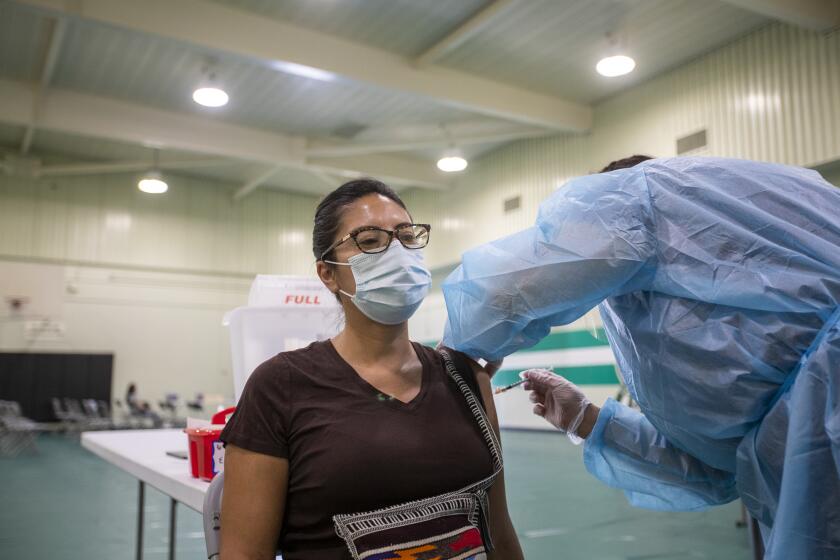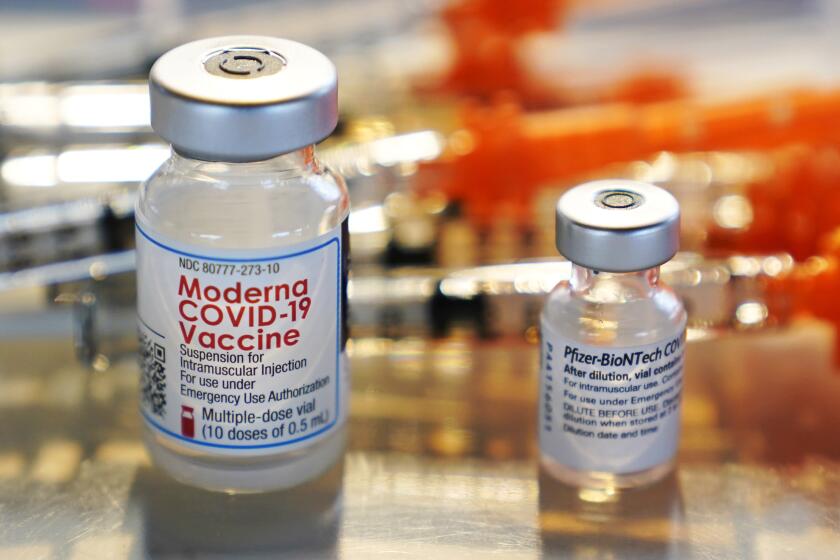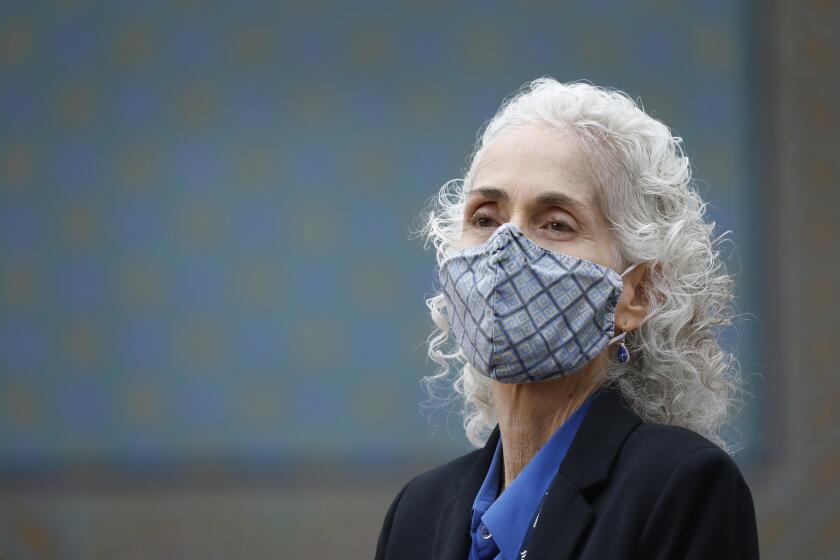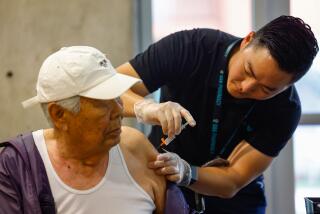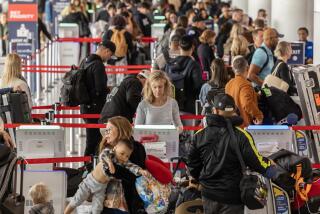For the vaccinated, how risky could holiday gatherings be?
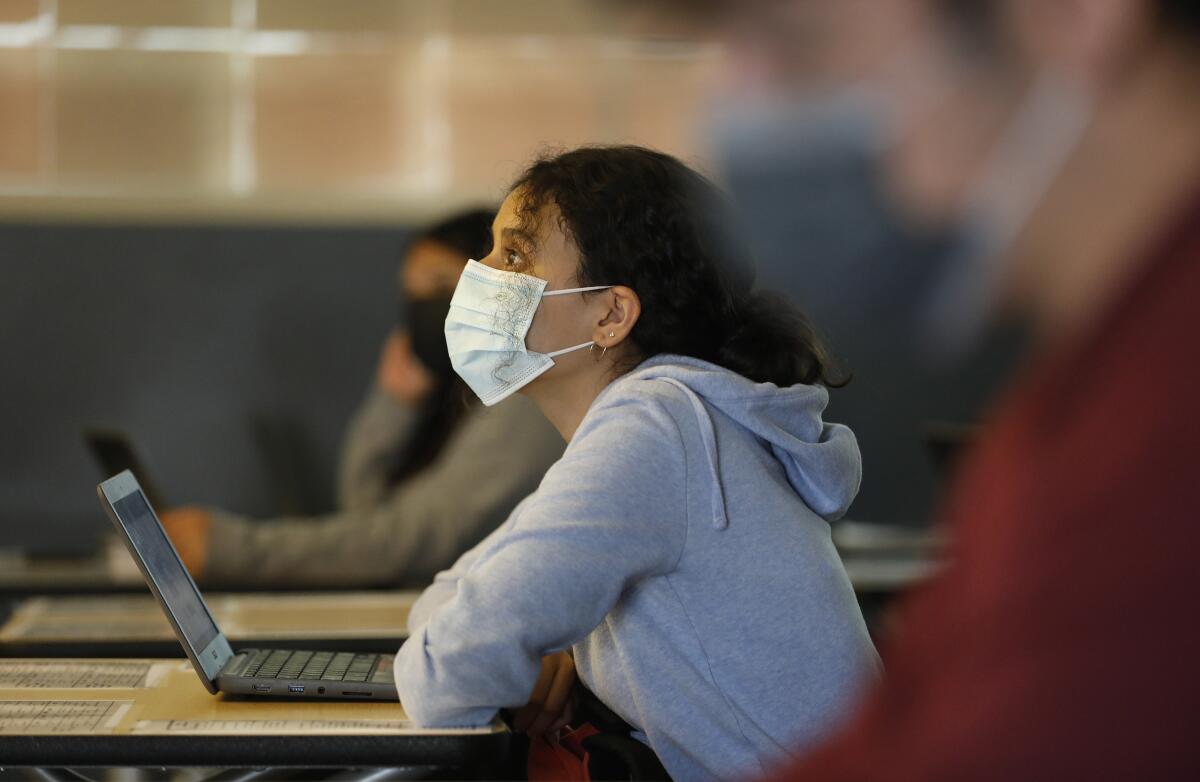
- Share via
In the coming months, with Halloween, Thanksgiving and Christmas approaching, family and friends are likely to gather in ways they haven’t since the COVID-19 pandemic began almost two years ago.
But with many guest lists including children under 12 who have not been able to get vaccinated, how worried should those who are be about being infected?
Officials say it’s possible to safely participate in many holiday activities if everyone is vaccinated. But it is certainly possible for inoculated people to get infected and then pass the virus on to someone else.
“I don’t think anybody should feel 100% certain that if they’re fully vaccinated, and they were to become infected with the virus — even if they’re asymptomatic — that they’re not capable of spreading or transmitting,” said Los Angeles County Public Health Director Barbara Ferrer.
This Halloween seems set to more closely resemble pre-pandemic normal, with even Dr. Anthony Fauci saying outdoor trick-or-treating is safe.
But she and other experts say the chance of fully vaccinated people transmitting the virus is lower than among the unvaccinated. And that makes a big difference during the holidays.
“The chance of transmission is related to two variables: your chance of having COVID and your chance of transmitting if you have it,” Dr. Robert Wachter, chair of UC San Francisco’s Department of Medicine, wrote in an email. “The vaccines markedly lower the probability of any individual transmitting because of both of these factors.”
Wachter said he would suggest extra precautions be taken when considering the presence of a child with an underlying condition or an elderly person with a suppressed immune system.
It is challenging to induce immunity against COVID-19 in people with compromised immune systems, according to Dr. Eric Topol, director of the Scripps Research Translational Institute in La Jolla.
In some schools, teachers and other workers suddenly disappear, leaving voids, but there are no massive disruptions after vaccination deadline.
The risk of a fully vaccinated person getting a breakthrough infection can largely depend on how much transmission of the virus is going on in any given community. Places that are strict about requiring proof of vaccination to do certain things, like walking into a bar or restaurant, will generally have lower rates of transmission in those venues.
“That’s as safe as you’re going to be able to make it,” said Dr. George Rutherford, a UC San Francisco epidemiologist and infectious diseases expert.
One way to further reduce risk at a family gathering like Thanksgiving is to have guests take a rapid test just before. Those tests can be purchased at drugstores and provide results within 15 minutes — though they can sometimes be hard to find.
Unlike tests that need to be analyzed in a lab and generally take at least a day to get results, rapid tests offer near-instant answers on whether you’re infectious with the coronavirus, according to Dr. Michael Mina, epidemiologist at the Harvard T.H. Chan School of Public Health.
COVID-19 boosters are an extra dose of the original vaccine, and some wonder why they weren’t better matched to the Delta variant.
Tests taken several days before attending an event might offer information that is too stale to be useful.
“That’s kind of like going through a security [screening] at the airport, and then being allowed to go back home for three days, repack your bags, and then when you come back, you don’t have to go through security again,” said Mina, who spoke during a UC San Francisco forum hosted by Wachter.
While there’s always a slim chance of a false positive with a rapid test, those who do get that result can at least avoid others while they seek further confirmation.
Across California, unvaccinated people are seven times more likely to test positive for the COVID-19 virus than vaccinated people, state health figures show.
And in L.A. County, the nation’s most populous, just 1% of fully vaccinated residents have subsequently tested positive. Far fewer, 0.036%, have become so ill they’ve eventually been hospitalized.
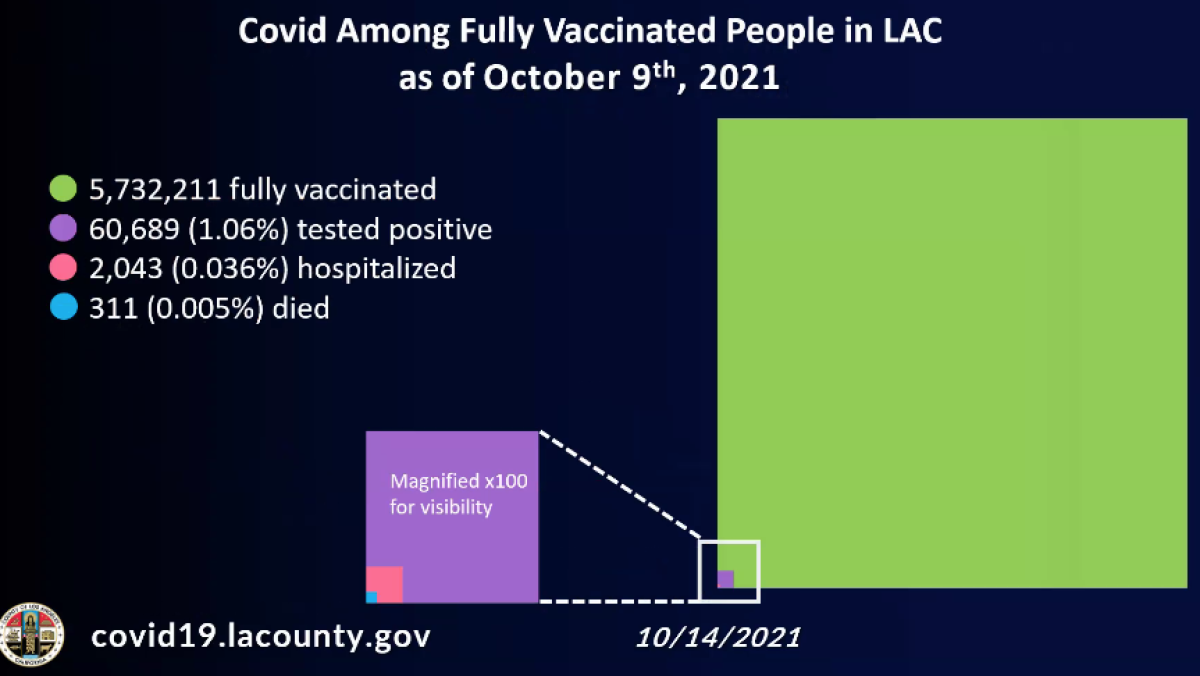
Another UC San Francisco infectious diseases expert, Dr. Monica Gandhi, also emphasized that symptomatic fully vaccinated people are more likely to transmit the virus than vaccinated individuals with no symptoms.
A study from Singapore suggests that the amount of virus in the nose of an infected vaccinated person “drops really quickly” compared to people who are not vaccinated, Gandhi said. That means that a vaccinated person with a breakthrough case might be infectious for a shorter period
Another study cited by Gandhi, out of the Netherlands, found that vaccinated people were significantly less likely to have infectious virus in their noses compared to the unvaccinated. Coronaviruses taken out of vaccinated people’s noses were essentially so hobbled by the immune system they couldn’t be grown in a lab, meaning they would not be considered infectious.
Gandhi said she’s not particularly worried about fully vaccinated people developing a breakthrough infection and going on to transmit the virus to young children while remaining asymptomatic. Gandhi said she’s felt safe taking her parents, who are in their 80s, to indoor restaurants in San Francisco, even though she has an 11-year-old at home who is too young to be vaccinated.
Another factor that reassured Gandhi: San Francisco’s health order requiring everyone age 12 and older to be vaccinated to dine at indoor restaurants.
“A whole bunch of well-feeling people in a room who are all vaccinated should not be spreading to each other,” Gandhi said.
Public health officials are recommending everyone get a flu shot now to stave off a potentially bad season.
But because symptomatic vaccinated people can transmit the coronavirus, Gandhi said she would suggest her parents begin to wear masks at home if they start developing cold-like symptoms.
Most officials and experts agree that the most important thing parents can do to protect children too young to be vaccinated is to get immunized themselves. Hospitals in Orange County, for instance, have generally indicated that children who are hospitalized with COVID-19 have family members who are not vaccinated.
More to Read
Sign up for Essential California
The most important California stories and recommendations in your inbox every morning.
You may occasionally receive promotional content from the Los Angeles Times.

